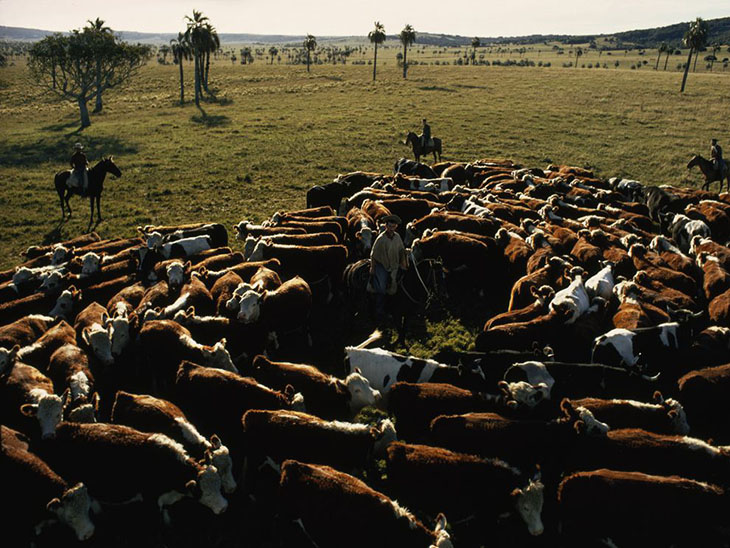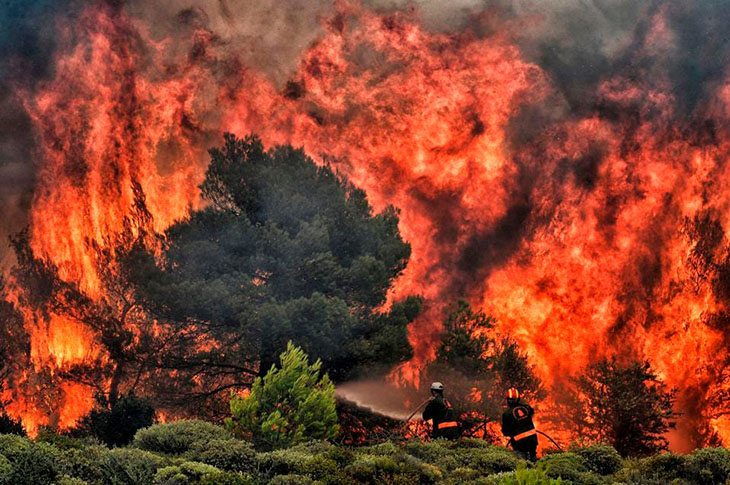
Wildfires happen every single year, destroying the forests and homes in the area. People lose millions of dollars just to rebuild these, and the whole process could take years. Back then, the only way to stop the flames from spreading was through brave firefighters.
As for Europe, much of the land has become home to shepherds and ranchers, and it is only recently that they realize how important they are when it comes to preventing the spread of wildfires. Laws have been placed to protect them, and perhaps, protect the forests in the process.
European shepherds and ranchers are now in the front and center when it comes to forest fire prevention. That’s because they have the most means to do so simply by leading their animals to areas and allow them to clear away pervasive underbrush, which is the very thing that gives fuel to these dangerous forest fires.
Laws that then prohibited the same practices are being changed, adjusted, bent, or rescinded. This has allowed rural communities to begin playing a vital role in managing the land’s forest. In the very center within the proponents for this is a project called GrazeLIFE. This is a publicly-funded science effort that seeks to explain and elucidate the best way grazers, both for domestic and semi-wild areas, will be able to assist in increasing biodiversity in the area and preventing forest fires from clearing vital land.
In flatter or thinner forested areas, the larger herbivores were found in a 2021 study that Grazelife made, and they realized that these animals were able to be crucially effective when it comes to lowering the fire risk of the surrounding forest.
“In general terms, it is clear that wild and semi-wild herbivores such as horses and bison can reduce wildfire risk through their grazing,” said Julia Rouet-Leduc. She is the lead author of the study. “Such herbivores can be particularly effective in remote and inaccessible areas, where careful management can prevent wildfire and benefit wild nature in other ways,” she added.
Smaller animals like goats and sheep, on the other hand, are better for areas that have a low number of natural predators. In Italy, there are virtually no large carnivores and because they are not in peril when it comes to losing an expensive herd animal, the eating habits of these smaller livestock have made them ideal for clearing woody shrubs and other plants that aren’t included in the larger herbivores’ diet.
A Different Animal
Take a look at the forests in Europe. They might seem pristine and filled with such wonder. However, it’s not what it seems because it’s no longer a natural ecosystem. These European forests have gone through changes brought about by people through forestry and livestock grazing. This has been happening since the beginning. Because of the interruptions, natural equilibrium is no longer a reality.
When climate change regulations made had hindered the full shepherd’s ability to work in woodlands, it became a part of a continent-wide effort to hold back large deforestation activities. It had been effective because the total forests cover in Italy went up by 75 percent since the 1960s.
Unfortunately, this may have also been the first time many forests, such as the ones found on the mountains of Montiferru on the Italian island of Sardinia, had gone through any type of prolonged periods with the absent of grazing animals in their areas.
The presence of roe and red deer, and other native herbivores, have disappeared from European forests for years now. This meant that the loss of sheep and goats gave them zero protection. Nothing stopped the woody shrubs from growing wildly in the understory. When exposed to brushfires, these become dangerous infernos that destroy everything in the way.

This was the present condition, and the shepherds on Sardinia had decided to write a letter to the Italian Ministry of Agriculture. They asked them to give in to forest-dwelling shepherds and their animals space to graze within the woods once more. They also were asking the government to create a restoration project in the rural areas of Montiferru. Why Montiferru? Because this was where Italy’s worst wildfire in 40 years had taken place as the flames burned their way from the mountain tops to the sea. Their goal was to bring in more shepherds who are equipped at controlling the fires. Their presence will also enhance and bring in eco-tourism in the area. This will incentivize the shepherds to make a home there.
This project has already seen proof of success in both private and public incentives in Catalunya, Spain. In 2016 the Fire Flocks Project started by looking at where the fires most often started and became the deadliest. They then created a line of premium brand meat and dairy products that is produced by 22 shepherds. Around half of the numbers were new to the job. They were trained to graze sheep, goats, and bovines in 600 fire-prone areas.
In came as no surprise that the most invested in the forests’ survival would be their biggest allies. They all wanted to save the areas, and both shepherds and animals, will help everyone, thus creating a chain reaction that ensures safety for all.
What are your thoughts? Please comment below and share this news!
True Activist / Report a typo


